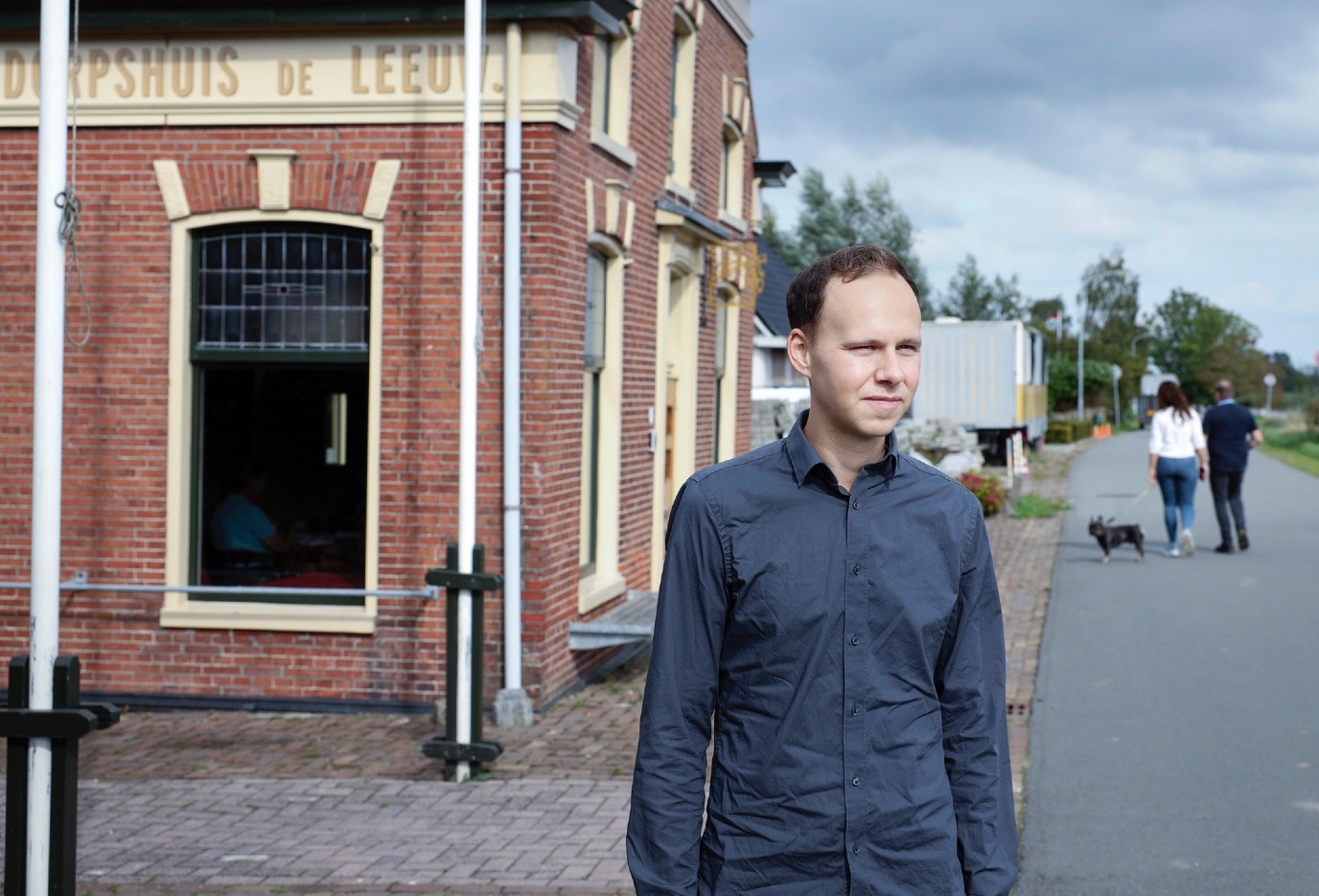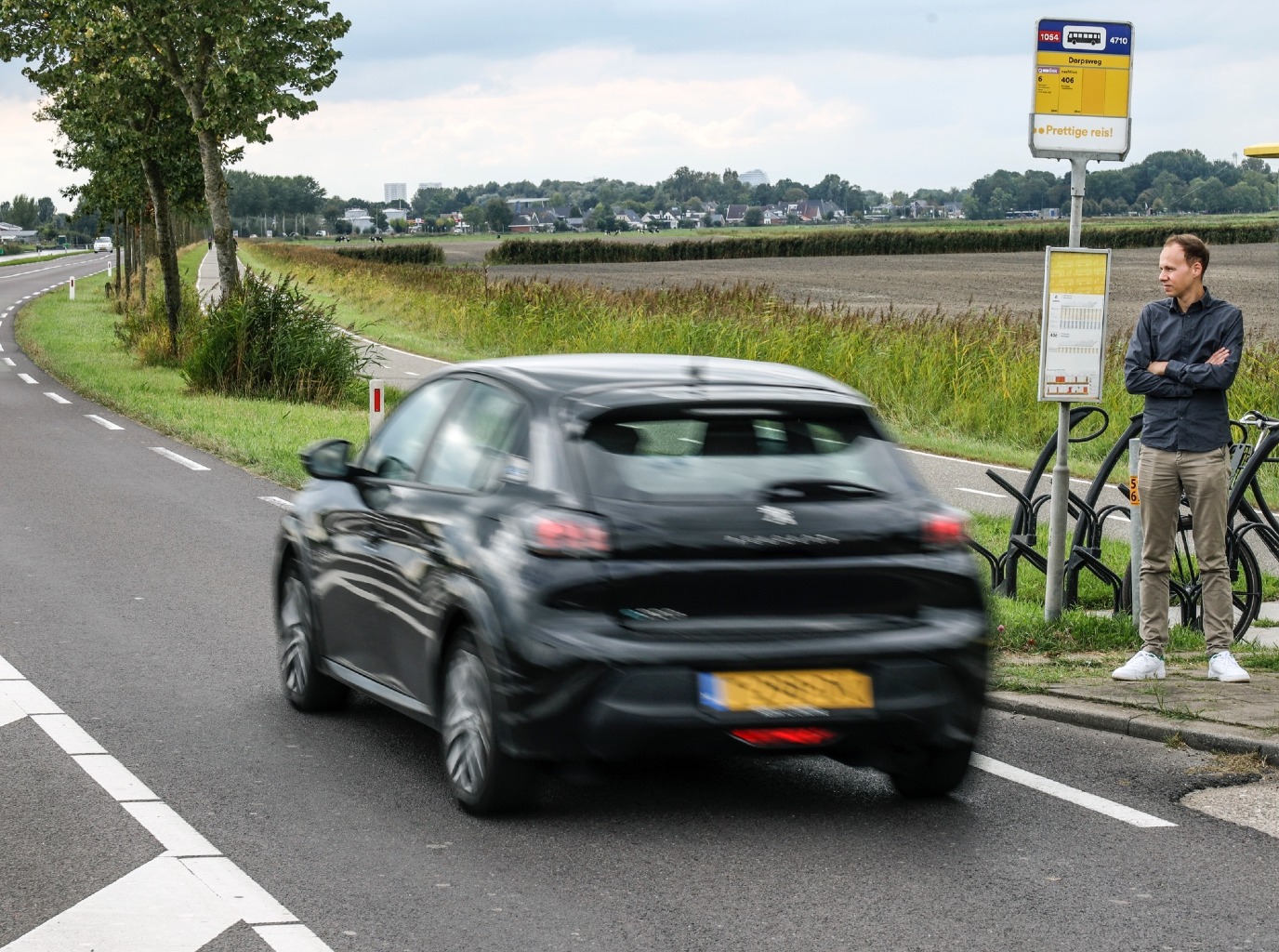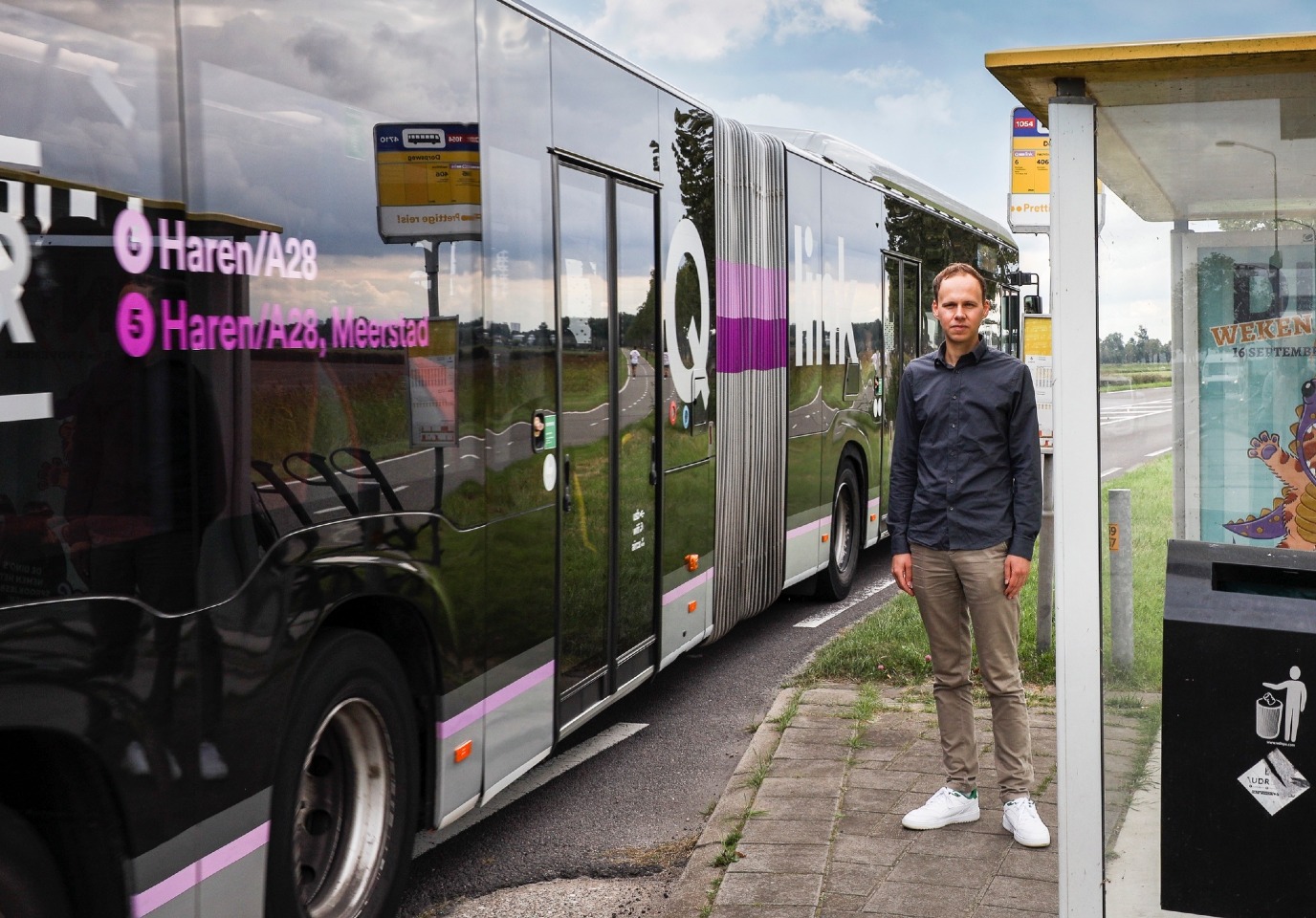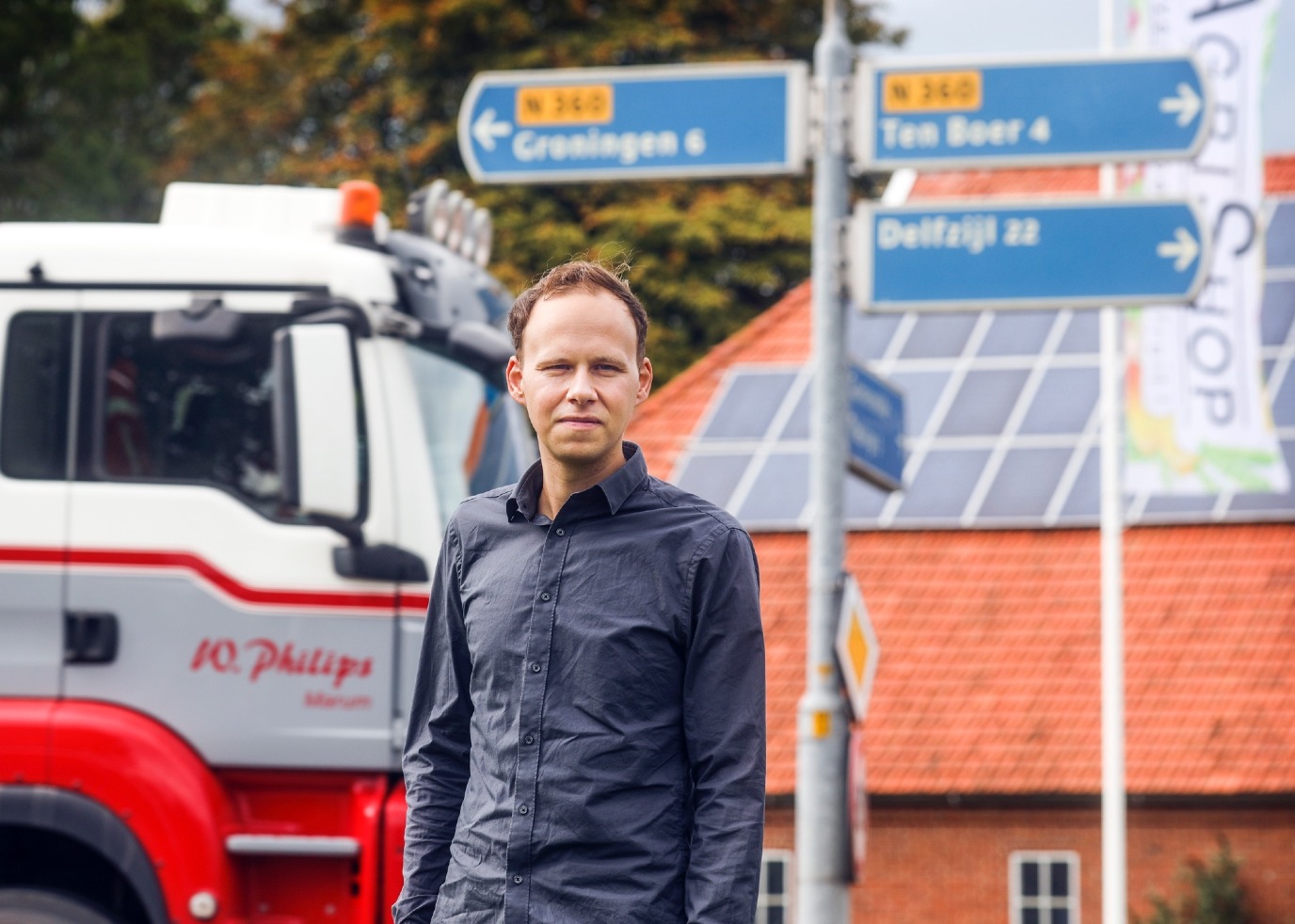The threatening chasm in the countryside
The supposed chasm between city and countryside is not that bad, according to Felix Pot. Thanks to the widespread car ownership among countryside residents, most of them experience little hindrance from the declining accessibility of shops and other facilities. Pot: ‘A threatening chasm in the countryside is more likely: between car owners and the people who do not have their own mode of transport. Policymakers should be focusing on that.’
Text: Gert Gritter, Corporate Communication UG / Photos: Henk Veenstra
Quality of life
Transport geographer Pot obtained his PhD at the end of 2023 for his thesis on accessibility issues in rural areas. It dealt with the question of how people actually experienced longer distances. The results were surprising and received a lot of publicity. It turned out that only about 12% of rural residents experience problems with reaching travel destinations. That is not a high percentage and it also does not differ a lot from other parts of the country, where it is roughly 8%. Pot: ‘People often talk about the “chasm” between city and countryside and that the quality of life in the countryside is deteriorating: shops being closed, facilities moved away, bus lines cancelled. That the people who live there should be pitied, that they’re stuck in their homes and can’t go out anymore. That image turns out to be false.’

Smoothies
‘Actually, most rural residents are not less satisfied with accessibility than urban residents,’ says Pot. ‘They have plenty of possibilities to go to the places that are important to them due to the car ownership, which is relatively larger in rural areas than in urban areas. People also more often own a second and sometimes even a third car in the countryside. If the local grocery store, ATM, bus stop, and pub disappear in one place, this usually happens because there are plenty of better alternatives in other places. The total availability may go down a little but not the accessibility. You could even pose that the concentration of facilities combined with car use is more beneficial to most rural residents than only having local, small-scale facilities. And as long as one or two supermarkets remain in the direct vicinity, the car owner does not have a problem. Many rural residents purposely choose the countryside for its peace and other benefits. They feel that these benefits cancel out having less facilities than in the city. They mind it less when they, so to speak, don’t have a fun place nearby, where they can order a mango cucumber smoothie or bubble tea.
Car dependency
Are there then no issues at all with accessibility in the countryside? No, that is not correct either, Pot thinks. First of all, the life of the 12% of have-nots—such as elderly people, children, people with low income or a disability—is of course not made any easier. This group is immediately affected when the local grocery store disappears or a bus line is cancelled. Secondly, the car dependency brings further challenges. Growth and stimulation of traffic by constructing or widening roads is undesirable in the context of sustainability. And there are other limitations as well. If driving a car becomes unaffordable for some because of an increase in, for example, fuel prices and such, even more people are left out.’ And finally, there is an upper limit to the distance that rural residents are reasonably able or willing to cover with their own mode of transport.

Disadvantage of the countryside
Accessibility in the countryside has become entangled with the perceived disadvantage of the countryside, because it is seen as cause and proof thereof. This issue is a topical political theme, which is also reflected in the emergence of political parties such as BBB and NSC. Pot: ‘Some politicians benefit from the “chasm story” and many voters believe in it, as surveys also revealed. People in the countryside are against a bus stop being removed, even if they never use public transport, because they think it’s unfair. At the same time, politicians promise to counteract the countryside’s disadvantage by bringing back facilities such as bus lines. This is predominantly gesture politics, however. It is a solution that only benefits a small group, but empty buses are of no use to anyone, and on top of that it is bad for the environment as well.’
Subjective data
Pot’s research shows that you should not fixate on objective data about concepts such as ‘distance‘ and ‘accessibility’, because they may be experienced very differently on a subjective level. A better method would be to evaluate the problems from the bottom up, rather than immediately coming up with generic measures. ‘We should pay more attention to regional and individual needs. My research contributes to the clarification of underlying assumptions in accessibility policy. How long should it take to reach an essential facility? Does it differ per facility? Could it differ per group with different needs or mobility possibilities? How big may differences between regions be? Making a consideration based on the experience of accessibility makes such questions around setting accessibility goals a bit less complicated.’

Every region counts
Pot’s research was published at a time of a shift among policymakers. Traditionally, the issue of accessibility was mainly solved by promoting mobility, e.g. combatting traffic jams, promoting a smooth flow of traffic, free movement, tackling bottlenecks. However, the insight is starting to dawn that every region is unique and that a policy has different consequences for one region than for the other, as also comes forward in the advisory report Elke regio telt! [Every region counts!] that was submitted to the government.’ Pot is frequently invited to ministries to hold lectures and to take a seat at the policymakers’ table.

Two prizes
Pot’s thesis won no less than two awards this year: the Royal Holland Society of Sciences and Humanities (KHMW) Van der Knaap Thesis Award 2024 and the World Society of Transport and Land Use Research 2024 Dissertation Award. Does that make you proud? ‘What I find most important is that the theme of accessibility in rural areas receives extra attention because of this, also from fellow researchers. And the other prize involved worldwide competition with other institutions. If the UG stands out in the midst of all the MIT noise, that’s good marketing for Groningen. That I like,’ the doctor from Delfzijl says with a smile.
More information
More news
-
01 December 2025
The power of movement
-
24 November 2025
RUG en Ministerie van I&W starten brede meerjarige samenwerking
